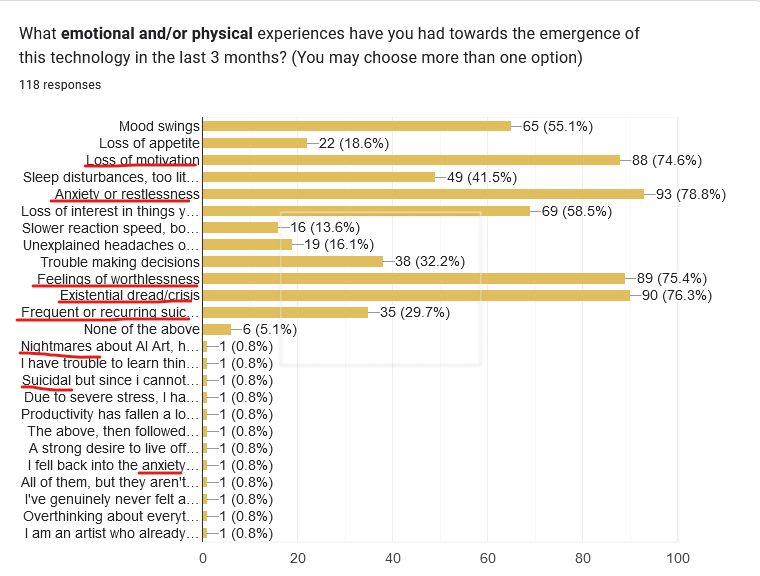Survey Reveals the Impact of Generative AI on the Mental Health of Artists and Creatives
- A small survey of creatives reveals a significant emotional impact caused by the rise of generative AI, leading to feelings of worthlessness and career uncertainty.
- The lack of trust and transparency in the use of AI-generated art exacerbates these feelings, with concerns about the legitimacy of artwork attributed to human creators.
- The mental health implications of AI’s growth extend beyond artists to other professions, such as copywriters and programmers, who may also face job losses due to AI advancements.
As generative AI continues to gain traction in the creative industry, a small survey conducted among artists highlights the emotional toll it is taking on their mental health. The rise of AI-generated art has led to feelings of worthlessness and uncertainty about the future of their careers, as well as a lack of trust and transparency in the industry.
Recent incidents, such as the Bradford Literature Festival commissioning AI art and a digital art magazine removing their cover due to doubts about its human origin, have only added to the sense of unease among creatives. As AI-generated works become increasingly popular and recognized, artists who spend hours on their creations feel undervalued and demotivated.

Responses to the survey also indicated the emotional impact of AI on artists goes beyond just feeling devalued in their work. Many reported a loss of motivation, sleep deprivation, anxiety, and low self-esteem as they grapple with the implications of AI in their profession. This issue extends beyond artists, as other professions, such as copywriters and programmers, may also face job losses and similar emotional struggles due to AI advancements.
The increasing reliance on AI-generated art raises questions about the value of human creativity and the consequences of automation. As one respondent noted, the combined work of AI and humans may be perceived as less valuable than solely human-produced art, further exacerbating feelings of worthlessness among creatives.
As generative AI continues to make inroads into the creative industry, it is crucial for stakeholders to consider the emotional and mental health implications for those whose livelihoods and sense of purpose are at risk. Addressing these concerns may involve fostering greater transparency and trust in the industry and exploring ways to support creatives in adapting to a rapidly changing landscape.
